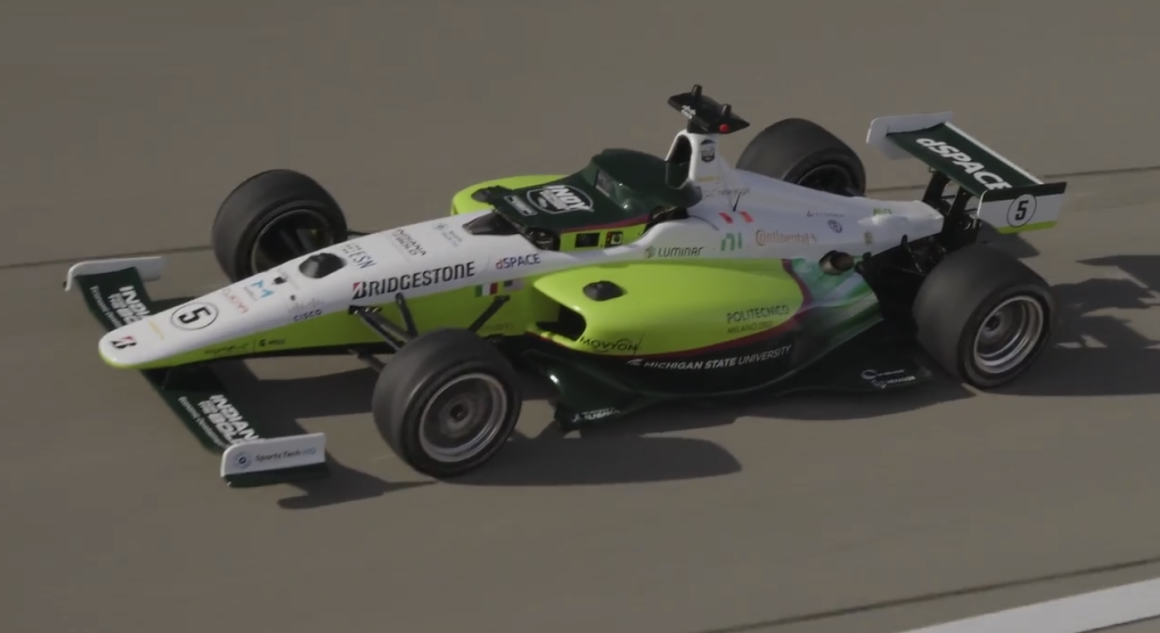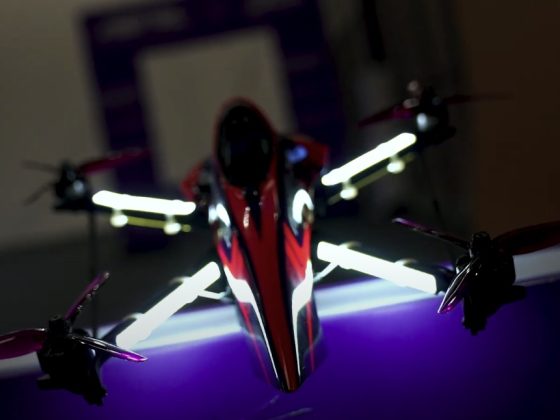We follow racing for its drama — the driver’s split-second decisions, the wheel-to-wheel duels, the triumph after the checkered flag. In the Indy Autonomous Challenge (IAC), that drama shifts from drivers to developers. Here, AI systems take full control of high-speed race cars, turning the spotlight on code, algorithms, and engineering teams from some of the world’s leading universities.
What Is the IAC?
Launched in 2019, the IAC is an autonomous motorsport competition where teams race identical Dallara AV-21 chassis — modified Indy Lights cars outfitted with sensors, high-powered processors, and drive-by-wire systems. The only difference between teams? The software that decides when to brake, accelerate, or attempt an overtake.
The goal is not just entertainment but advancing autonomous vehicle technology. Pushing an AI system to make real-time decisions at 192 mph is the ultimate stress test — one that could shape how self-driving cars handle critical moments in everyday traffic.
How the Races Work
IAC events are structured around three main formats:
- Time Trials: Single-car runs against the clock, testing raw speed and stability.
- Head-to-Head Battles: Two AI cars race together, practicing overtakes and defending position.
- Multi-Car Races: The most complex — and newest — format, where several AI cars share the track, bringing chaos and unpredictability.
The Dallara AV-21s are packed with LiDAR, radar, GPS, cameras, and NVIDIA DRIVE computing platforms. Every command — from a gentle steering adjustment to a full-throttle straight — comes from the AI’s code.
Our Take on the Race
The IAC is both exhilarating and strangely impersonal. The speeds are incredible, the engineering is elite — but without human drivers, the connection is different. It’s not about a fearless racer; it’s about a fearless line of code.
From a technology perspective, it’s fascinating. Teams are refining algorithms for obstacle detection, optimal race lines, and overtaking logic — the same skills that will one day make autonomous cars safer on public roads.
From a fan perspective, the race feels more like watching a Formula 1 practice session crossed with a live hackathon. The excitement is in seeing if the AI will nail a perfect overtake or make a critical error under pressure.
Betting Outlook — Can You Wager on IAC?
Currently, there is no regulated IAC betting market for the Indy Autonomous Challenge. No US or UK sportsbook lists IAC events, and there are no confirmed offshore markets. However, the competition’s format lends itself to potential betting in the future.
Because all teams use the same Dallara AV-21 chassis, results depend entirely on AI performance and software strategy rather than hardware differences. The sport generates a large amount of telemetry data — speed, lap times, overtakes — which could support markets similar to esports, such as fastest lap, total overtakes, or first car to complete a set distance. With no drivers, bets would likely be placed on teams or institutions rather than individuals, building loyalty around universities and research labs.
The main barriers are the absence of a regular season calendar, a lack of established championship points, and the challenge of building fan engagement when there are no human competitors. Until these elements are in place, widespread betting remains unlikely, though technically feasible.
Next Races & 2025–2026 Outlook
The IAC has already showcased its races at some of the world’s most recognized motorsport venues, including Indianapolis Motor Speedway, Las Vegas Motor Speedway, and Kennedy Space Center. Each location has pushed the limits of the AI systems in different ways — from high-speed oval racing to complex multi-turn road layouts.
For 2025–2026, the series is expected to expand its scope. Organizers have confirmed:
- More Multi-Car Races: Building on recent head-to-head formats, the IAC will stage events with multiple autonomous cars on track at once, introducing racecraft scenarios such as drafting, defending, and overtaking in traffic.
- International Races: Talks are underway for European events, potentially bringing the IAC to historic motorsport circuits with technical layouts that will further challenge the AI.
- Pushing Speed Records: The current autonomous speed record of 192 mph, set at Kennedy Space Center, will be targeted for further improvement as teams refine algorithms and optimize sensor inputs.
While exact dates for the 2025–2026 season are yet to be announced, the IAC calendar is expected to feature two to three major events per year, including one at a high-profile international venue. Official Site: indyautonomouschallenge.com
From Drivers to Developers
The Indy Autonomous Challenge strips racing down to a battle of ideas. It’s not who dares brake latest — it’s whose code handles risk best. That’s a huge shift for motorsport, and it’s why the IAC is as much a tech showcase as it is a race.
Whether betting becomes part of its future will depend on how quickly the format matures and whether fans can find a story to root for — even when the hero is a line of code.








